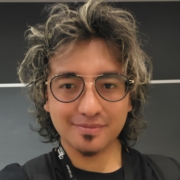CRA-E Graduate Fellows Program
The CRA-E Graduate Fellows program provides opportunities for Ph.D. candidates in a computing field to contribute to the Computing Research Association’s Education Committee (CRA-E) projects, network with computer science education advocates on the committee, and engage in advocacy for undergraduate research education.
CRA-E’s activities focus on promoting the health of the computing research pipeline including promoting undergraduate research, providing resources to faculty to prepare talented students for research, and encouraging undergraduates to pursue graduate education and research careers in computing fields. Current and past CRA-E activities can be found here.
Call for nominations
CRA-E seeks one Ph.D. candidate to serve as a Fellow. This is an opportunity for graduate students in computing-related fields to gain experience serving on a national committee of the computer research community.
CRA-E typically has two fellows and appoints one new graduate fellow per year with each fellow serving for two years in staggered appointments. Given the two-year term length, in order to be eligible, nominees need to be current graduate students with at least two years left of study.
Fellows provide a graduate student voice to the committee. And they attend the annual CRA-E meeting, manage the research highlights series, and contribute to the CRA-E’s SPARC site, (previously Conquer).
*Applications are now closed. Decisions will be announced in February 2025.
Nomination process:
Faculty members are invited to nominate one graduate student from their institution (multiple nominations are permitted by distinct faculty members from the same institution).
A nomination package includes:
- One faculty recommendation letter describing the student’s interpersonal skills and evidence of interest in mentoring undergraduates. Importantly, this letter should describe the student’s involvement in PhD research and their experience mentoring undergraduates in research.
- The student’s C.V. including their research interests and accomplishments.
- A one-page statement written by the student describing their interest in the CRA-E Fellow position, experience mentoring undergraduates, and long-term aspirations.
Typically, faculty member nominating candidates will be in the student’s department, but they do not have to be the student’s advisor.
Selection process:
CRA-E members will select the CRA-E Fellows, with preference given to students in their third year (or later) of graduate school in computer science, computer engineering, or information sciences. Moreover, criteria for selection include interest in undergraduate education, evidence of interest in mentoring undergraduates in research, interpersonal skills, and interest in professional service at the national level.
Applicants are encouraged to examine the CRA-E website and indicate what aspects of CRA-E activities are of interest to them.
CRA-E Fellow Responsibilities:
- Attend the annual CRA-E meeting (typically in June; travel expenses reimbursed by CRA-E)
- Manage the undergraduate research highlights series
- Contribute to CRA-E’s social media
- Provide a graduate student perspective for material on the CRA-E’s SPARC site, (previously Conquer).
CRA-E Fellows are expected to contribute approximately 5 hours per month.
Selection Committee:
Denys Poshyvanyk, William & Mary
Emma McDonald, U of Alberta
Alejandro Velasco Dimate, William & Mary
Applications Open: Monday, October 14, 2024
Application Deadline: Monday, November 18th, 2024
Decisions will be made and communicated by February 2025.
The Fellow’s term starts June 1, 2025; it is a 2-year appointment.
Current and Past Fellows:
Emma McDonald, U of Alberta (2024 – present)
Alejandro Velasco Dimate, College of William and Mary (2023 – present)
Yasra Chandio, U of Massachusetts, Amherst (2022 – 2024)
Nadia Ady, U of Alberta (2021 – 2023)
Ian Ludden, UIUC (2020 – 2022)
Jean Salac, U of Chicago (2020 – 2021)
Joslenne Peña, Penn State (2019 – 20)
Robert Bowden, Harvard (2018-20)
Booma S. Balasubramani, UIC (2017-19)
Keith Feldman, Notre Dame (2016-18)
Max Grossman, Rice (2016-17)
New Fellow Announcements: 2024, 2023, 2022, 2021, 2020, 2019, 2018, 2017, 2016
Current CRA-E Graduate Fellows:
Alejandro Velasco Dimaté
CRA-E Graduate Fellow
College of William and Mary
Emma McDonald
CRA-E Graduate Fellow
University of Alberta
Emma is a PhD student in Computing Science at the University of Alberta supervised by Carrie Demmans Epp. She earned her master’s degree from the University of Alberta in 2019, working on a tool to help students learn introductory Python programming.
Emma is part of the EdTeKLA group that does research at the intersection of education and technology. She investigates how aspects like sense of belonging, mental health, and identity impact post-secondary students’ experiences and persistence in their CS degree programs. The goal of her work is to increase students’ success in CS by addressing both pedagogical and social factors.
Emma’s interest in CS education began in her undergraduate degree when she taught elementary school students to make Arduino-powered cat ears. Since then, she has been a sessional instructor, a teaching assistant, a MOOC developer, and a junior researcher supervisor. She also serves as the local coordinator at the University of Alberta for the CRA’s UR2PhD program.



